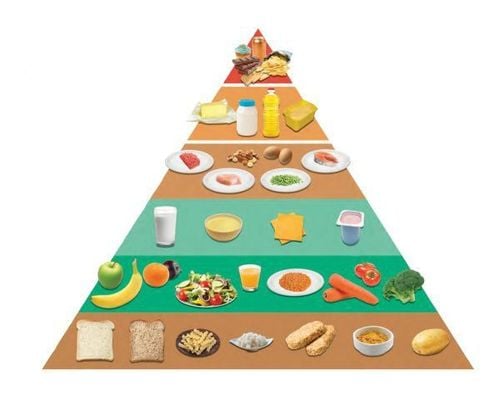This is an automatically translated article.
Nutritional supplementation too late or too early affects development, moreover this is also one of the reasons for the increased rate of malnutrition in infants. If nutritional supplementation is too late, it will not meet the child's needs and the child is often deficient in micronutrients, making the child slow to grow, stunted and susceptible to infections caused by the immune system of the child. child is too weak.
1. Effects of too late nutritional supplementation for children
Nutritional supplementation for young children is to give them foods other than breast milk. These foods and liquids are called complementary foods because they supplement breast milk with micronutrients, but cannot completely replace breast milk in providing adequate nutrition. Complementary foods need to meet the requirements of foods that contain nutrients and are sufficient in quantity for the child to continue to grow.
When the baby turns 6 months old, the baby's growth rate will increase more, so the baby's nutritional needs also increase, but breast milk cannot meet the needs in this period. Therefore, parents need to supplement their children's nutrition in addition to breast milk. From 6 months of age and older, there will be a gap between the total energy required for the baby and the energy level provided by breast milk. As children grow older, this total energy deficit increases, so this is the right time to supplement nutrition for children.
If nutritional supplementation is too late, the child will not receive the complementary foods to meet the child's developmental needs. Since then, children are often undernourished, especially children lacking micronutrients, because the concentration of nutrients in liquid foods is not enough to meet the daily needs of children over 6 months old, making children underdeveloped. growth, growth retardation and weak immune system make it more susceptible to infections.

Bổ sung dinh dưỡng cho trẻ sớm hay muộn đều ảnh hưởng tới nhu cầu phát triển của bé
2. Principles of feeding children with nutritional supplements
Some principles in supplementing nutrition for children include:
Feed children from liquid to solid form and the time to practice giving thin powder is only 2-3 days, then switch to solid food. Feed your baby from a little to a lot and let them get used to new foods gradually. The number of meals and foods will gradually increase with age, ensuring that the food is suitable for the baby's taste. Prepare mixed foods, with enough nutrient groups, using locally available foods. Children's bowl of porridge or bowl of flour need to add many other foods to make the color and taste more attractive and full of quality. When dying, it is necessary to ensure that the food is soft and easy to swallow to prevent the child from choking. It is necessary to increase the energy of food by adding oil, fat or peanuts, sesame to make the porridge bowl both fatty and fragrant, easy for children to swallow to avoid choking and choking and provide more energy to help children grow up quickly. Ensure food hygiene and food processing for children to avoid causing digestive disorders. Parents should wash their hands before preparing food for children and before feeding them. Let t breastfeed as much as possible. When sick, you need to feed your baby more, especially later. Give your child more fluids and stay hydrated, especially if they have diarrhea and a high fever. Limit giving children candy, cakes or soft drinks before starting meals. Because sweets, inhibit gastric secretion, increase blood sugar, leading to anorexia, skipping meals or eating less during meals. When feeding young children, parents need to be patient, always encourage and encourage them to create better eating habits. Fortify micronutrients when necessary, avoid late addition of micronutrients. In summary, too late nutritional supplementation for children not only affects the development but also is one of the reasons for the increased rate of malnutrition in infants. If nutritional supplementation is too late for children, it will not meet the children's needs and lead to micronutrient deficiencies, making children grow slowly, stunted and susceptible to infections because of the immune system. Children's immunity is too weak.
To help children achieve the best developmental milestones, in addition to nutrition, parents should supplement children with supporting products containing lysine, essential micro-minerals and vitamins such as zinc, chromium, selenium, B vitamins help meet the nutritional needs of children. At the same time, these essential vitamins also support digestion, enhance nutrient absorption, help improve anorexia, help children eat well, and develop comprehensively.
Please regularly visit Vinmec.com website and update useful information to take care of your baby and family.













